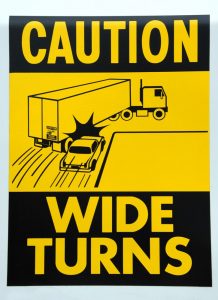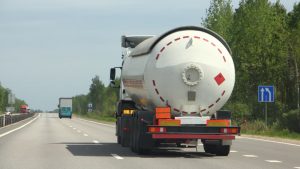 With millions of drivers and passengers traveling on America’s roads and highways each day, the risk of an accident occurring is an unfortunate reality. Driver negligence can cause accidents, as can events outside of a drivers’ control, like adverse weather or road conditions. Whether there’s an accident involving two passenger vehicles, a passenger vehicle and a motorcycle, or a passenger vehicle and a commercial vehicle, auto accidents can result in serious injuries to both drivers and passengers.
With millions of drivers and passengers traveling on America’s roads and highways each day, the risk of an accident occurring is an unfortunate reality. Driver negligence can cause accidents, as can events outside of a drivers’ control, like adverse weather or road conditions. Whether there’s an accident involving two passenger vehicles, a passenger vehicle and a motorcycle, or a passenger vehicle and a commercial vehicle, auto accidents can result in serious injuries to both drivers and passengers.
There are significant differences between auto-on-auto accidents and auto-on-commercial vehicle or truck accidents. The size of trucks compared to passenger vehicles and the weight of the contents that trucks can carry can increase the risk of injury to drivers and passengers. There are also some accident causes that are specific to truck accidents that don’t occur in crashes between passenger vehicles. The person or entity who may be liable in a truck accident as opposed to in a car accident can vary as well. Below are more details about the differences between truck and other auto accidents.
Types and Causes of Accidents
Reckless driving, such as speeding, or inclement weather can cause motorcycle, passenger vehicle, and commercial vehicle accidents. There are some types of accidents and their causes, however, that are exclusive to truck accidents because of the function and physical properties of commercial vehicles. These common truck accident types and causes include:
- Underride accidents occur when a passenger vehicle becomes lodged under the rear of a truck or tractor-trailer, which may happen when the trucker slams on the brakes.
- Accidents due to heavy or improperly placed loads occur when goods are loaded onto a truck in a way that causes the truck to be imbalanced or the load is too heavy, which can cause a truck to tilt or roll over.
- Jackknifing accidents – occur when the rear of the trailer of a truck swings toward the front cabin, creating a vee shape. This may happen when the driver loses control of the vehicle because of high speeds or slippery conditions.
- Wide turn accidents occur when a truck crashes into a vehicle (or pedestrian) while making a wide right turn, as is necessary for some trucks and tractor-trailers.
Hindsight is 20/20 but it’s always better to be safe than sorry. Read about some things every driver should know about preventing accidents with trucks.
If you were involved in a collision with a truck that was not your fault, contact the personal injury attorneys of Hankey Marks & Crider today. Set up a free initial consultation about your case to discuss your options for compensation.
What Is the Truck Carrying?
Truck loads can include hazardous chemicals and flammable items, and when the trucks are involved in accidents, those items can be spilled or ignited. An already life-threatening collision can be made worse if the passenger vehicle occupants are exposed to a potential fiery blast or chemical spill. Additionally, the hazardous material can complicate or delay emergency services from being able to tend to injured drivers and passengers.
In the event of a fire, firefighters would have to try to extinguish the fire simultaneously or before rescuing and tending to injured victims. If there is a toxic chemical spill, specially trained emergency professionals may have to be contacted to access the area before injured victims could be rescued and treated for the safety of the emergency professionals and the general public.
Who Is Liable?
When there is a car accident, often the driver is responsible, and liable, for compensating you for your injuries because the accident was caused by their negligent actions. Less commonly, the manufacturer of a vehicle may be liable for the accident if defective parts or a mechanical malfunction were determined to be the cause of the accident.
 In truck accidents, the driver, the trucking company, or the manufacturer of the truck could be liable for the accident, depending on the cause of the accident. Trucking companies are required by law to carry specific levels of insurance for their drivers. Because the driver was acting as an agent of the company, the trucking company would potentially be liable.
In truck accidents, the driver, the trucking company, or the manufacturer of the truck could be liable for the accident, depending on the cause of the accident. Trucking companies are required by law to carry specific levels of insurance for their drivers. Because the driver was acting as an agent of the company, the trucking company would potentially be liable.
The trucking company could also be even more directly responsible for the accident. If the trucking company required the truck driver to drive for longer hours than is permitted by trucking regulations and truck driver fatigue is what led to the accident, that can further support the trucking company’s liability. A personal injury attorney can help you obtain the records from the driver’s travel log, where information like shift length and break times is documented.
Likewise, if the trucking company didn’t conduct the proper inspections and maintenance, and the accident was caused by a mechanical malfunction that should have been caught in an inspection, the trucking company would be liable.
Contact Hankey Marks & Crider Now
If you’ve been seriously injured in a truck or auto accident, contact the experienced Indianapolis truck accident attorneys of Hankey Marks & Crider. Our attorneys are highly skilled and dedicated, and have a combined eight decades of experience helping clients who have been injured due to the negligent and reckless actions of an individual or company. We’ve helped our clients pursue compensation for their injuries and have obtained considerable settlements and awards on their behalf.
For help with your claim or case, call Hankey Marks & Crider in Indianapolis at (317) 634-8565 or contact us online. Our dedicated attorneys will provide a free confidential consultation to discuss the details of the accident and your injuries and determine what your options may be to pursue the compensation you deserve.


